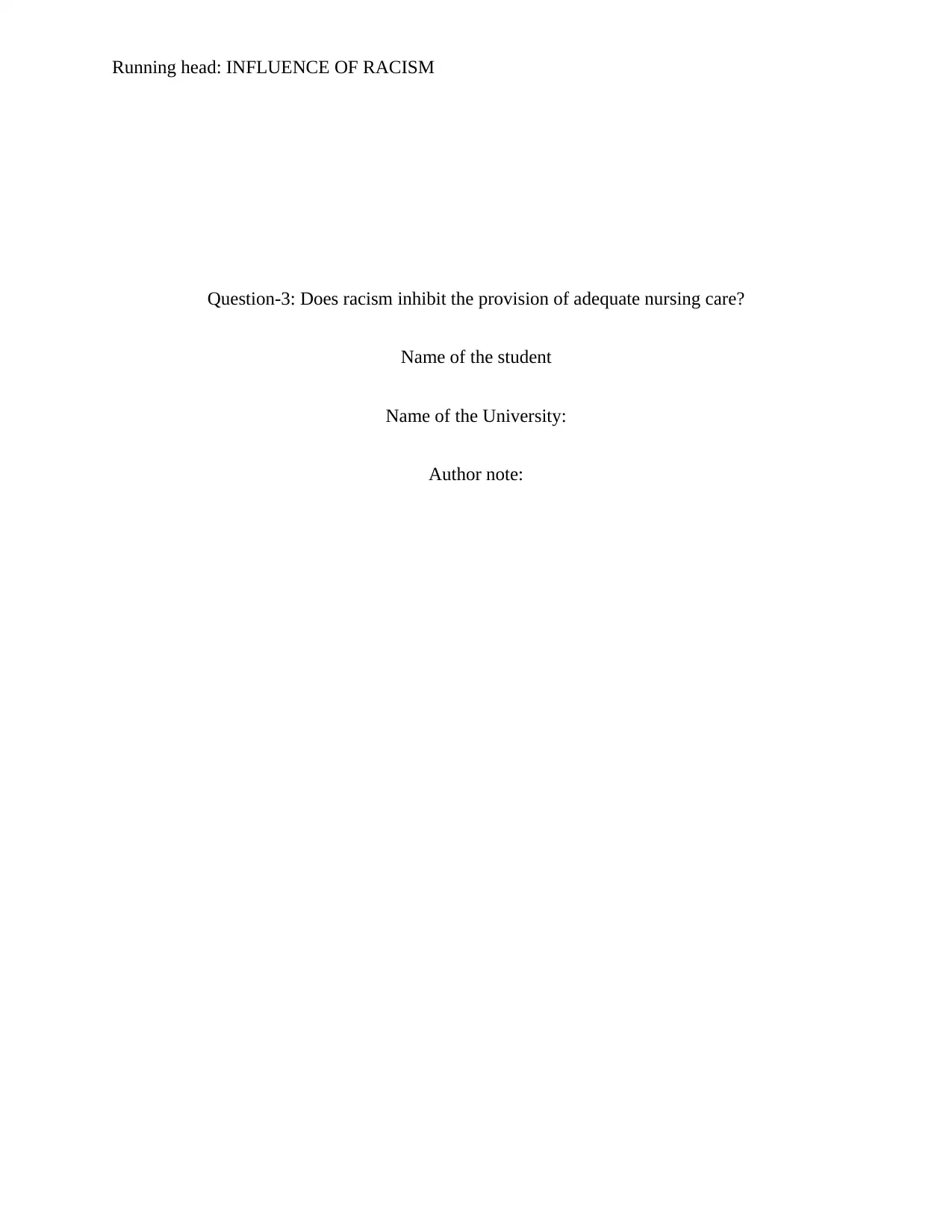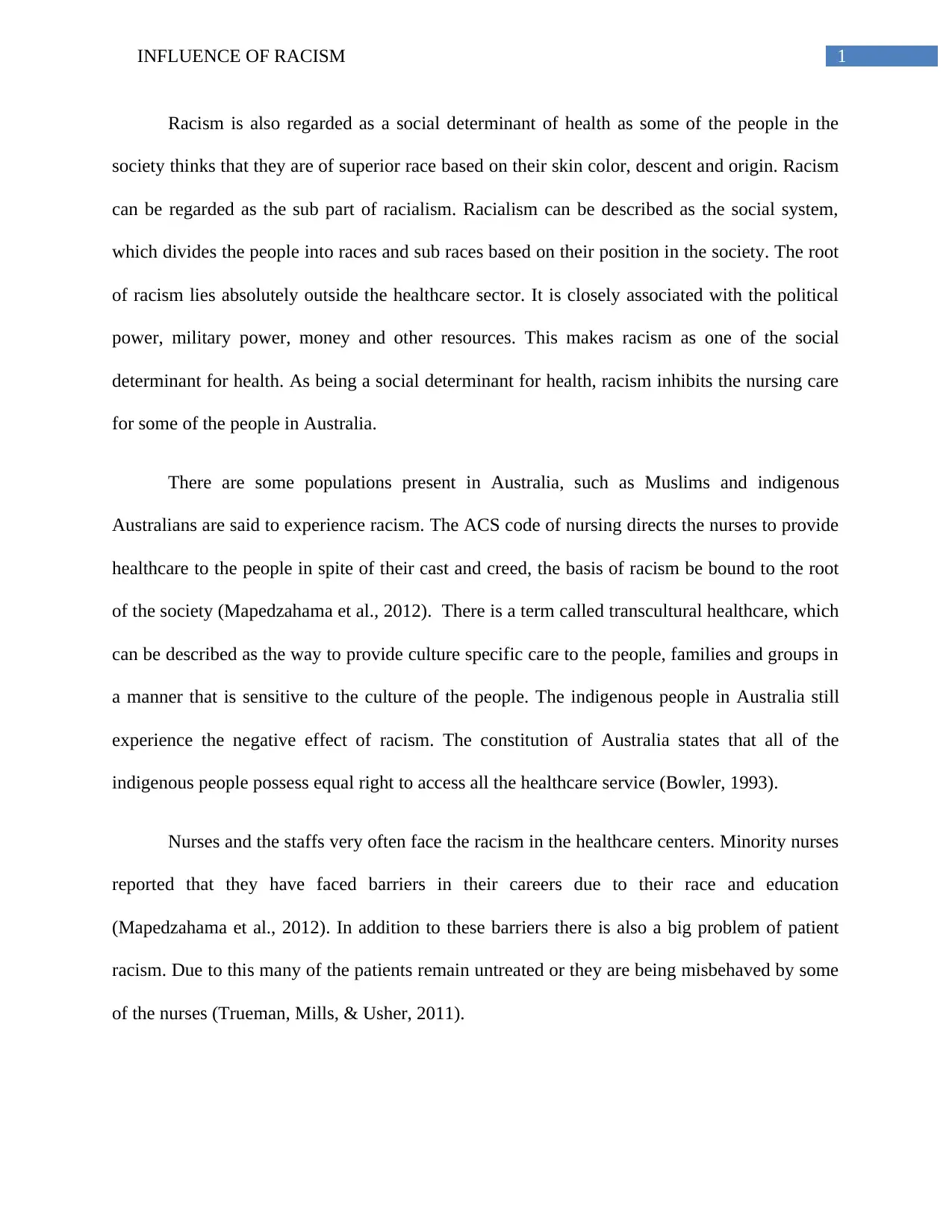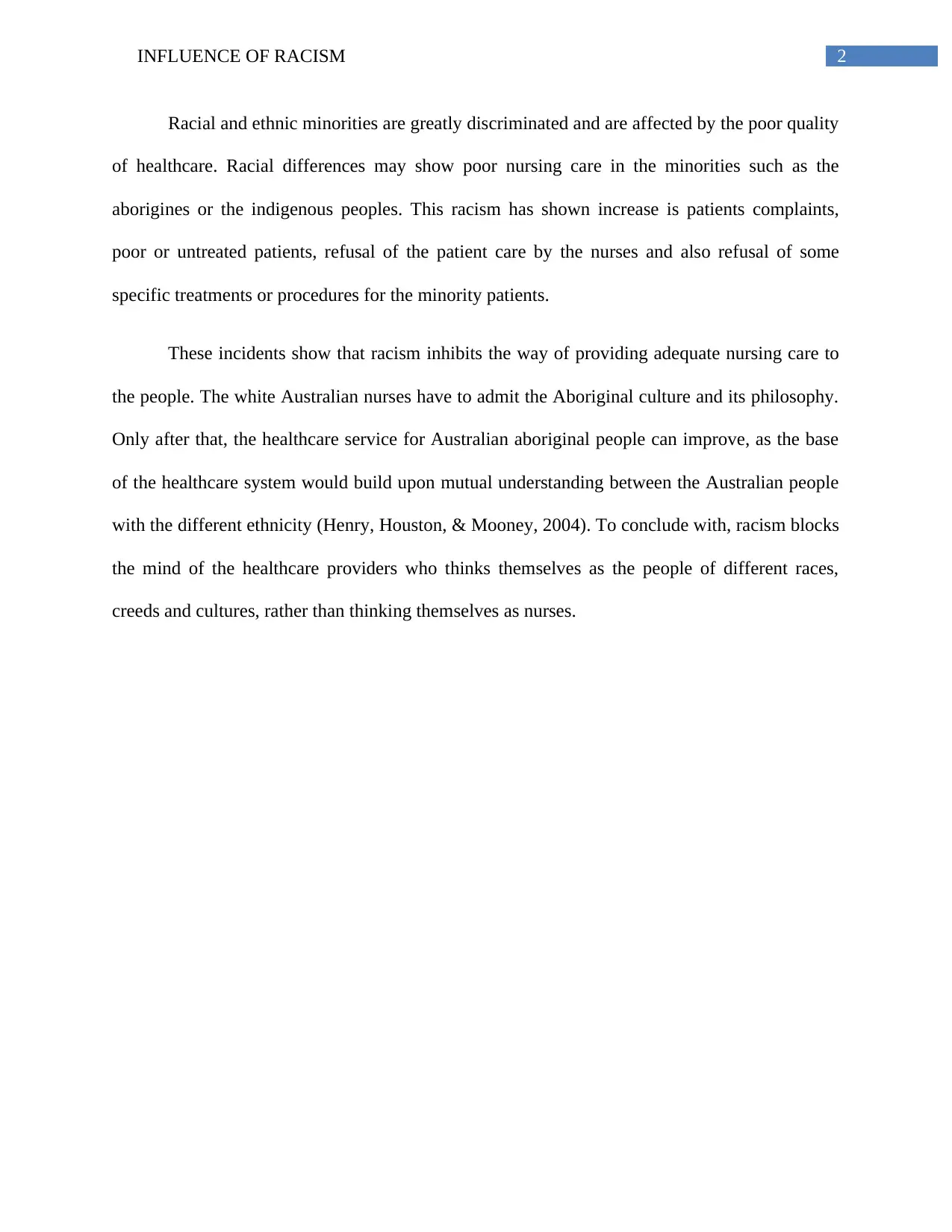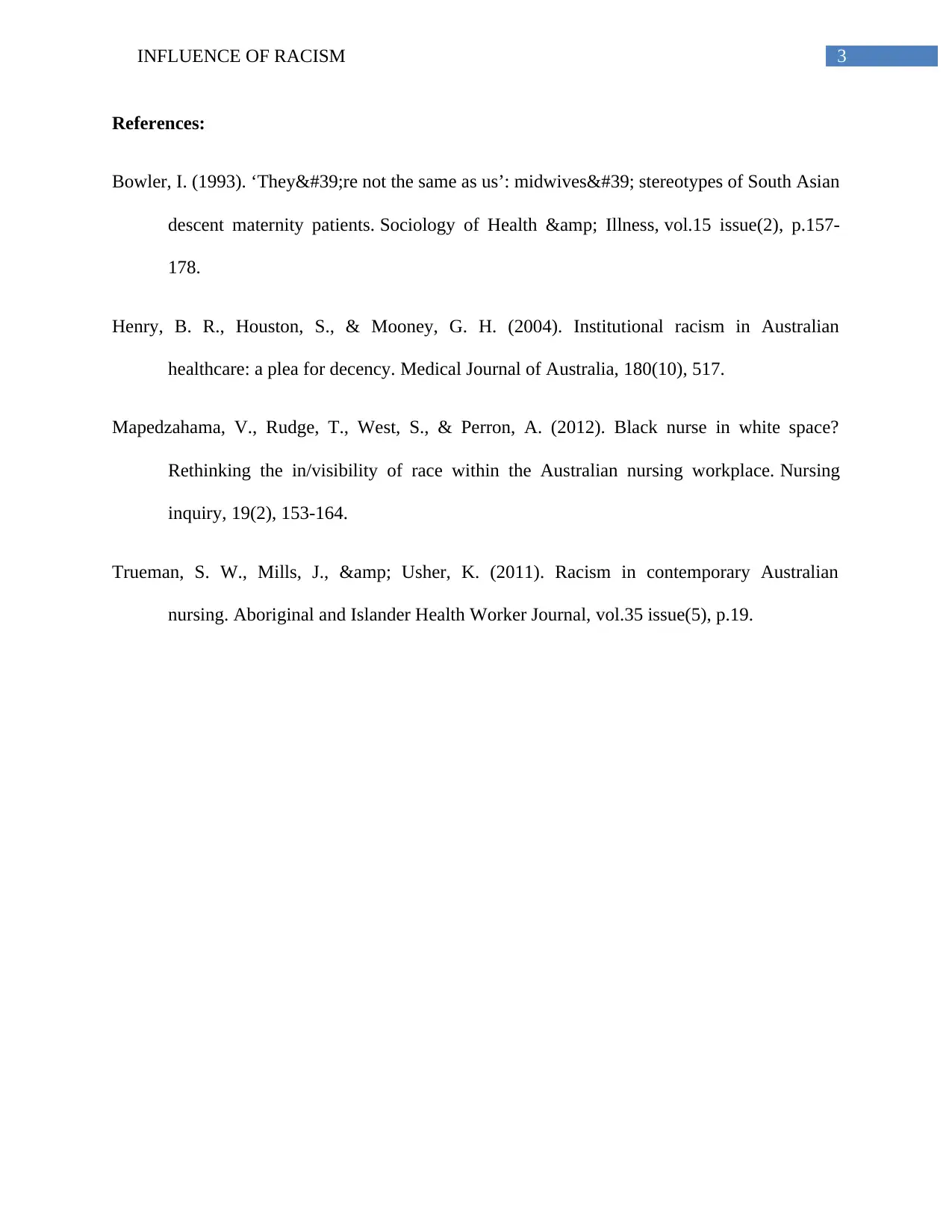Influence of Racism on Adequate Nursing Care: A Discussion
VerifiedAdded on 2020/03/04
|4
|755
|45
Essay
AI Summary
This essay investigates the detrimental influence of racism on the provision of adequate nursing care in Australia. It highlights racism as a social determinant of health, focusing on its impact on minority populations such as Muslims and Indigenous Australians. The essay references the ACS code of nursing and transcultural healthcare, emphasizing the importance of culturally sensitive care. It discusses the barriers faced by minority nurses and instances of patient racism, which lead to disparities in healthcare quality. The essay concludes that racism inhibits the ability of healthcare providers to deliver effective care, advocating for a shift towards mutual understanding and respect to improve healthcare outcomes for all Australians. The essay uses supporting references to strengthen the arguments and provide additional context to the discussion.
1 out of 4











![[object Object]](/_next/static/media/star-bottom.7253800d.svg)